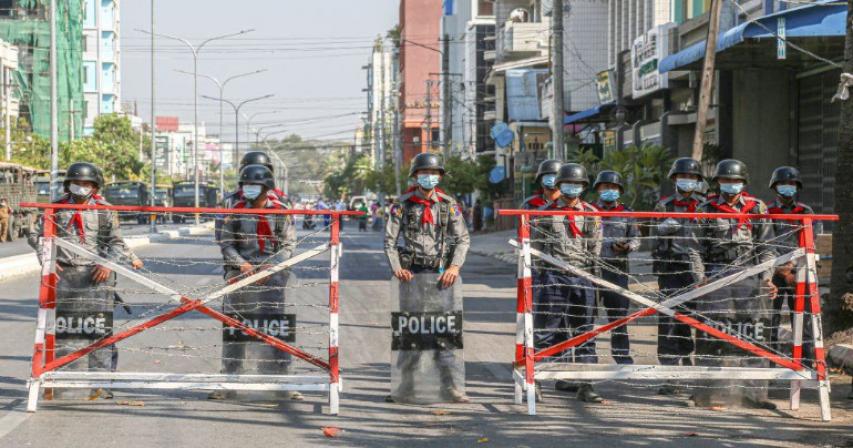Myanmar coup - Facebook, Instagram place immediate ban on military
- 4 years ago

Social media giant Facebook has banned Myanmar's military and its affiliates from its platforms.
The company said it acted after deciding "the risks of allowing the Tatmadaw [Myanmar military] on Facebook and Instagram are too great".
It had already banned the military's main page for breaching its guidelines following the 1 February coup.
The military has used Facebook to boost its claim of voter fraud in the 2020 election.
Facebook said in a statement late on Wednesday that it saw the "need for this ban" following the "events since the 1 February coup, including deadly violence".
At least three protesters and one policemen having been killed in violence at rallies against the coup, which removed the South-east Asian nation's elected government.
Facebook said it will also be banning Tatmadaw-linked commercial entities from advertising on the platform, adding that these bans would take effect immediately and would remain "indefinitely".
The military and the internet
Protests are taking place almost on a daily basis on the streets of Myanmar.
They carry on despite a previously thinly veiled threat by a military-linked broadcaster which suggested it would use lethal force against protesters.
Critics also say the military is trying to stamp out dissent online, by periodically shutting off access to the internet, and earlier blocking access to Facebook.
Article 77 of Myanmar's Telecommunications Law, passed in 2013, is used by the government to cut off telecommunications during a national emergency.
For the overwhelming majority in Myanmar, Facebook is the primary means of access to the internet.
This is not the first time Facebook has taken action against Myanmar's military. In 2018, it banned army chief Min Aung Hlaing - now the country's military ruler - and a number of other high-profile army figures.
It was the first time Facebook had banned any country's military or political leader.
Facebook cancelled their accounts after a UN report called for several leaders to be investigated and prosecuted for genocide over their role in violence against the Rohingya minority and others.
The move by Facebook came after activists had for years been raising the alarm about Facebook's role in spreading hate speech in Myanmar.
A UN report had found Facebook to be "slow and ineffective" in tackling hate speech. The "extent to which Facebook posts and messages have led to real-world discrimination and violence must be independently and thoroughly examined," it said.
Facebook had then also acknowledged that many in Myanmar relied on the platform for information, "more so than in almost any other country".
Source: BBC
Comments